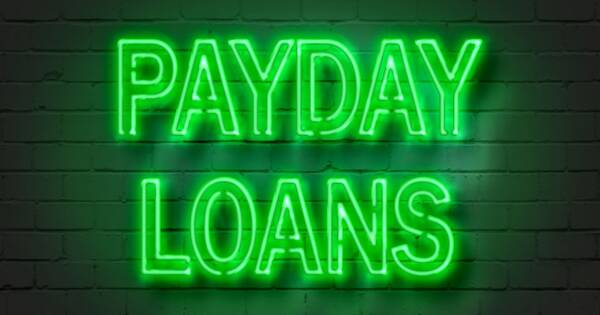Equity in a vehicle can serve as an unexpected source of cash, and an auto equity loan allows borrowers to access that value when money is tight. Many households continue to feel financial strain from rising expenses and limited savings, making it difficult to handle surprise costs. Under certain circumstances, borrowing against a car’s value can provide short-term relief, but the decision requires careful thought due to the risks involved.
What is an Auto Equity Loan?
An auto equity loan is pretty much the same thing as a home equity loan (or home equity line of credit). The only difference is the asset being used to secure the loan itself. Obviously, in the case of an auto equity loan, the asset is your vehicle. If your car is worth more than you still owe on it, you can potentially tap into that equity.
Before you call your bank, though, there are some additional details you need to know. Auto equity loans aren’t very popular for a reason. After all, most people are more likely to use a credit card to pay for a large unexpected bill. (Although those high interest rates make that an expensive choice).
Auto Equity Loans vs. Auto Title Loans
There are actually two ways to borrow money against your car. One of them is a much better choice than the other. Don’t confuse an auto equity loan with an auto title loan. They aren’t the same thing. An auto title loan is almost always a terrible loan, so avoid it at all costs.
An auto title loan is essentially a short-term, high interest payday loan which gets put against the title of your car. Because they are short term (and fairly predatory), they are much easier to get than an auto equity loan. However, if you fall behind on your payments, you’ll lose your car pretty quickly.
How to Calculate the Value of Your Car
The good news is that you can calculate the approximate value of your vehicle pretty easily. The bad news is that you’ll probably be disappointed. Cars of every make and model lose their value incredibly fast (although some hold it more than others). You might even find that you don’t have any equity in your car at all. If you opted for a six, seven, or eight year term, or were stuck with a higher interest rate, you might owe more than your car is ever worth for the majority of the loan.
To find the value of your vehicle, check out sites like Kelly Blue Book and Autotrader. Search for cars that are the same year, make, and model as yours. To get the most accurate number, make sure you’re comparing apples to apples. That is, don’t assume the fully loaded 2015 Honda Civic with only 35,000 miles on it that you see on Autotrader for $19,000 is the same as your basic model 2015 version that you’ve driven into the ground.
How Much Can You Borrow?
Once you have a good idea of what your car is worth, finding out how much you can borrow is just simple math. Take the value of the car, subtract how much you still owe on the loan, and that resulting number is the total equity you can potentially borrow against. However, be prepared for more disappointment.
Most lenders won’t let you borrow the full 100% of your auto equity. They prefer to keep a bit of a financial buffer, in case you don’t pay back the loan. If that happens, they can technically force the sale of your car in order to make themselves whole. Lenders may also have their own methods of determining the overall value of your car. So don’t be surprised if they think your vehicle is worth a few thousand less than you believe. You can certainly try to convince them otherwise, but you may not have much luck.
Potential Risks of Auto Equity Loans
Like any other kind of loan, an auto equity loan has some potential risk. After all, you’re borrowing money with the expectation that you will pay it back, with interest, in a timely manner. If you fail to make the scheduled payments, there are a number of consequences.
First of all, you may lose your car. Since you offered the vehicle up as collateral to get the loan, the lender is well within their legal rights to force the sale of the car in order to be paid back. You may still end up with the leftover cash after the auto equity loan has been zeroed out. However, you likely still owe that money to pay off the rest of your auto loan. Oh, and as a reminder, the car is no longer yours.
Other Hidden Costs
The other risks of auto equity loans are hidden fees, extra insurance costs, and credit score hits. Many lenders pad auto equity loans with a bunch of extra fees, since they aren’t a particularly common product. Lenders will probably also require you to have full comprehensive collision insurance on your vehicle in order to get an auto equity loan. If you were trying to save money by only having liability auto insurance (the bare legal minimum in most jurisdictions), you may be forced into paying more to secure the loan.
Adding a new loan to your credit report can temporarily cause your credit score to dip. That’s not great if you actively needed that score to apply for a large piece of credit, like a mortgage or business loan. On the other hand, if you do successfully pay off your auto equity loan in full and on time, your credit score could receive a small boost in the long run.
Alternatives To Auto Equity Loans
There are plenty of financial experts who would chastise anyone who seeks out an auto equity loan. After all, securing a loan with any depreciating asset isn’t exactly solid math. Your car keeps losing its value, but now you owe even more money against it. It’s not a great scenario to be in.
There are plenty of different loan products available. You should explore them all before settling on an auto equity loan. A straight personal loan may come with a higher interest rate or a lower overall amount, but at least you won’t lose your car if you can’t make the payments. A home equity lines of credit (HELOC) is another better option, if you have a mortgage. Revolving credit products like a credit card or line of credit is another option, if you qualify — although the interest rate on most credit cards can be hard to swallow if you’re carrying a large balance.
Should You Get One?
So should you get one? That’s a question that only you can answer. Under the right circumstances, an auto equity loan can be a useful way to get your hands on some fast cash. If you have a true financial emergency, it might provide the flexibility needed to carry you through the hard times. On the other hand, if you think tapping in your vehicle’s equity is a good way to fund a bigger TV or that exotic vacation you’ve been dreaming of, you should reconsider.
Auto equity loans are fairly uncommon, and for good reason. There are many better ways to borrow money — even hitting up a friend or family member could be a more cost-effective option. Lenders don’t really advertise auto equity loans either, because they’d prefer not to lend out money against an item that decreases in value every time it pulls out of the driveway.
The Bottom Line
We can’t tell you what constitutes a true financial emergency in your life. Maybe your beloved pet needs emergency surgery or you’re at risk of losing your home if you can’t make the mortgage/rent payment this month. If you find yourself in dire straits, but have a bit of equity in your vehicle, it might make sense to tap into.
On the other hand, you have to face the reality of this decision. You’re borrowing money that you’ll have to pay back. If you’re not sure whether you’ll be able to pay it back on time, you risk the very real possibility of losing your vehicle altogether. You should never apply for an auto equity loan without doing a lot of careful math and budgeting ahead of time.





